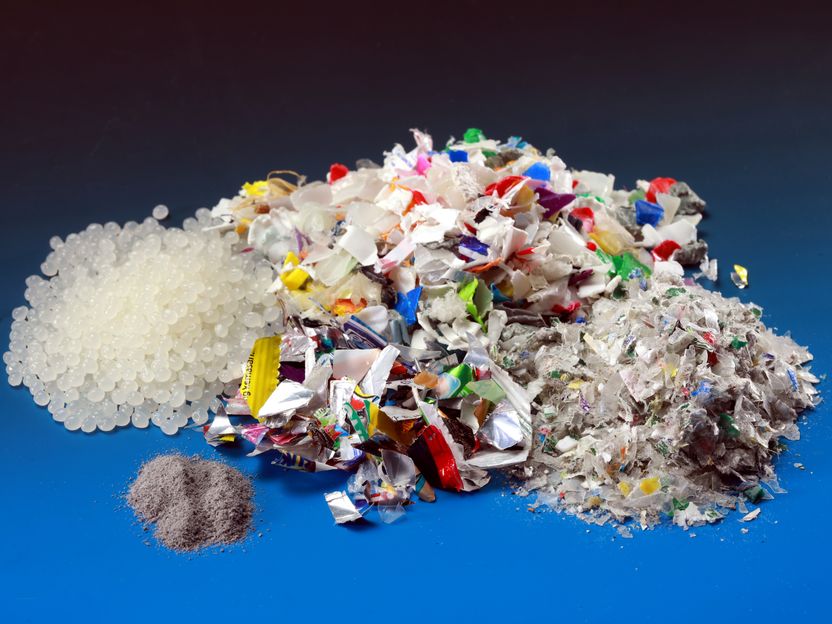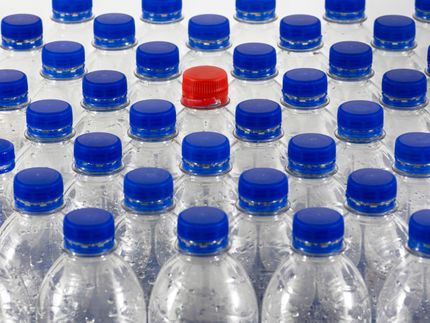Fraunhofer IVV participating in the EU project "Circular Plastics Network for Training"
Advertisement
The intersector and multidisciplinary research project "Circular plastics Network for Training" (C-PlaNeT) was approved in May 2019 within the framework of the H2020-MSCA-ITN-2019 Calls for European Joint Doctorates, with funding of almost 4 million euros. In total, 15 doctoral students (in the area of chemistry, process engineering, sociology, and economics) from 8 European universities along with 23 non-university partners (including Plastics Europe, Ellen MacArthur Foundation, DOW, Adidas) will take on the challenge of considering the complex topic of the circular economy of plastics from a holistic point of view. The Fraunhofer IVV is participating in the project in collaboration with the Chair of Flavor and Smell Research at the Friedrich-Alexander-Universität Erlangen-Nürnberg and the Fraunhofer Institute for Integrated Circuits IIS. The project will begin at the start of 2020.

Fraunhofer IVV
"The analytical measurement and removal of contaminants is the major challenge of recycling", according to Prof. Andrea Büttner, Deputy Institute Director and Head of the Sensory Analytics department at the Fraunhofer IVV. Prof. Büttner also occupies the Chair of Flavor and Smell Research at the Friedrich-Alexander-Universität Erlangen-Nürnberg in the Department of Chemistry and Pharmacy. Miriam Strangl is currently studying for her doctorate there and is involved with the characterization of odors and contaminants in recycled materials. "Our work goes far beyond the development of new processes and the removal of odorants. Odor is often an indicator of other undesired substances in the recycled material", says Strangl who was highly involved in the conception of the C-PlaNeT project. Prof. Büttner goes on to explain "the focus in recycling must not solely be on recovering valuable materials but must increasingly be on removing contaminants. Our task is also to identify hitherto undetected substances. Only then can we design recycling processes for their removal. I am endeavoring to advance knowledge in this area in close cooperation with research organizations and involving various disciplines and to also train young talent for the required interdisciplinary team collaboration". "The modern world we live in is complex and so are the products we use and the waste we produce. Knowledge about molecules and materials is a must to enable us to guarantee the manufacture of high-quality recyclates. It will allow the optimization of the decontamination efficiency of the various process steps."
Solvent-based processes – the key for decontamination in the recycling
The solvent-based CreaSolv® process already developed by the Fraunhofer IVV enables effective separation of plastic composites and contaminated household waste. The technology is suitable for recovering high-purity polymers that have the same quality as virgin polymers. According to Dr. Martin Schlummer, the lead Fraunhofer IVV scientist in the C-PlaNeT consortium: "The challenge is now to adapt the technology for other applications, for example for waste plastic found in the oceans."
Detection of chemical contaminants as a further challenge
In order for recyclates produced from plastic packaging waste to be used as a secondary raw material for high-quality consumer products, it must be ensured that the materials are free of contaminants. There is hence much interest in developing suitable in-process sensors to detect contaminants. Chemical diagnostics in recycling is however still underrepresented. In collaboration with the Fraunhofer IIS as a non-university partner, the consortium also wants to therefore identify possible means for chemical detection. The Fraunhofer IVV, Fraunhofer IIS, and the Friedrich-Alexander-Universität Erlangen-Nürnberg are not only project partners but also partners in the Campus of the Senses initiative and are in an excellent position to detect odorants and tackle these complex challenges.






























































